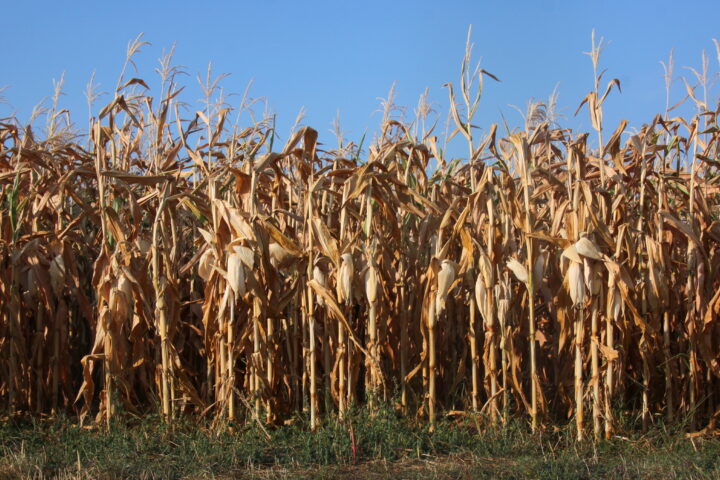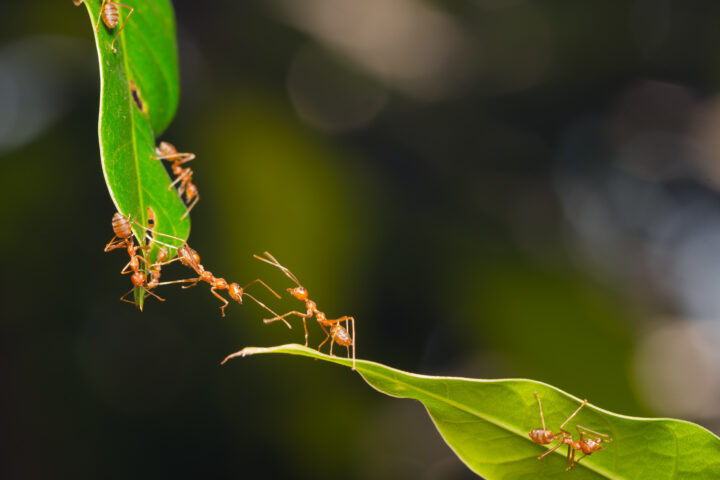«Who is afraid of the evil GMOs?»
Jürg Vollmer is editor-in-chief of the magazine «die grüne». He advocates the authorisation of breeding methods such as genome editing. In this way, the advantages of wild and cultivated plants can be combined in a meaningful way.
Tuesday, November 2, 2021
Content in German
Modernes Genome Editing ist kein Teufelszeug, sondern die logische Fortsetzung der Mutation und Mutagenese in der Pflanzenzucht. Pflanzengenetiker verändern das Erbgut mit der «Genschere» CRISPR/Cas so präzise, dass man auch von «Gen-Chirurgie» spricht. Ohne artenfremdes Genmaterial hinzuzufügen (= transgen-frei).
CRISPR/Cas unterscheidet sich in den Zielen und im Ergebnis nicht von der traditionellen Pflanzenzucht: Sie verändert ein Gen-«Schnipsel» und macht damit Nutzpflanzen ertragreicher und resistenter gegen Krankheitserreger und Schädlinge. Und das ist nötig: Denn die heutigen – auf hohen Ertrag gezüchteten – Nutzpflanzen sind genetisch verarmt.
Mit CRISPR/Cas werden Nutzpflanzen gezüchtet mit den Vorteilen der robusten (und oft auch schmackhafteren) Wildpflanzen und den Vorteilen von Kulturpflanzen, die Schädlingen trotzen, Pestizide einsparen und dabei mehr Ertrag liefern. Es wird Zeit, dass wir unsere Angst vor den «bösen GVO» überwinden und die Chance nutzen, die sie bieten.
Jürg Vollmer ist Chefredaktor der Zeitschrift «Die Grüne». Dieser Beitrag erschien zuerst in der Ausgabe 10/2021.
Related articles

The Poison and the Dose
The debate about threshold values for chemical residues in water and food is often shaped by misunderstandings and emotions. Few topics show as clearly how far perception and science can drift apart. But what do limit values really mean? In autumn 2025, the Agricultural Policy Podcast and swiss-food.ch will explore our relationship with limits and risk in a five-part series. The highlight will be a live podcast recording on November 5 at Bogen F in Zurich.

Lack of diversity becomes an existential problem
The dwindling genetic diversity in fields is becoming an increasing problem. Unfortunately, this problem is growing steadily, partly because politicians in Switzerland and the EU are viewing the issue through ideological lenses instead of listening to science.

Stagnation instead of progress: Switzerland risks falling behind in new breeding techniques
An overview article in Schweizer Bauer shows how much the new breeding methods are preoccupying farming circles. Once the consultation process on the federal law has been completed, a bill is expected – then it will become clear whether there is actually the political will to approve it.

Ant infestation threatens Zurich communities
An invasive ant from the Mediterranean region is spreading rapidly in the canton of Zurich, threatening communities, construction projects, and agriculture. Insecticides could help—but their use remains severely restricted.

